Heating Ventilation and Air Conditioning (HVAC) is a field with an ongoing demand for trained professionals. Especially in warmer climates, the market needs adequate specialists with current skills, licenses, and innovative thinking.
Let's dive into the field and see the requirements for becoming an HVAC specialist. Explore the programs in San Diego and pave your way to your desired career.
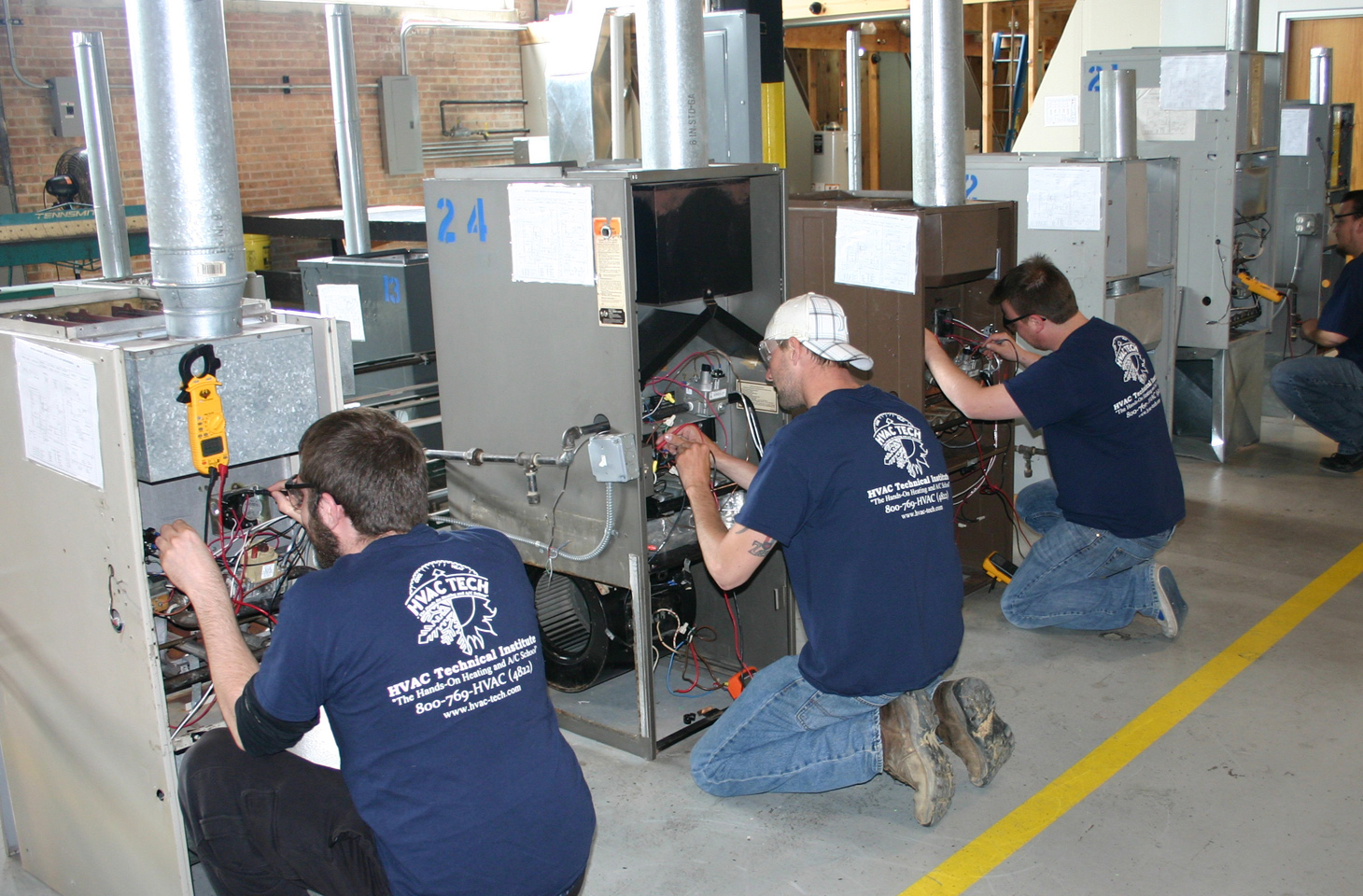
Photo credit: Hvac-Tech.com
How Long is HVAC School?
Enrolling in HVAC schools and programs is an ideal way to start your journey towards a growing career. However, you need to know that graduating is only half of the way. There are other requirements for seasoned professionals and contractors.
- A high school diploma or a General Educational Development (GED) Test score: This step usually takes four years.
- Complete an HVAC program: Depending on several factors, the process might take six months to two years.
- An apprenticeship: This one's optional but helps a great deal to get into the field. It usually takes three to five years.
- Post-apprenticeship fieldwork: This is an optional step before getting a certification.
Professional Licensing and Certification
Although the licensing process varies in different states, there are generally accepted credentials nationwide. These organizations usually prepare discipline-specific and fieldwork-ready professionals. Below are a few of them.
HVAC Excellence
This certification course aims at raising professional competency among HVAC specialists. The organization has been around since the mid-1990s. It validates technicians and ensures that the education meets specific standards.
It offers employment-ready programs, advanced hands-on courses, and even credentials for HVAC educators.
North American Technician Excellence
This non-profit offers programs and exams for service and installation technicians. It's one of the most widespread and acknowledged education and testing organizations with many years in validation and certification.
It offers proctoring and testing, recertification, industry news and research, and career opportunities.
Refrigeration Service Engineers Society
This institution is one of the oldest certification organizations. It improves professional education and provides study materials, test preparation courses, and further development to HVAC specialists.
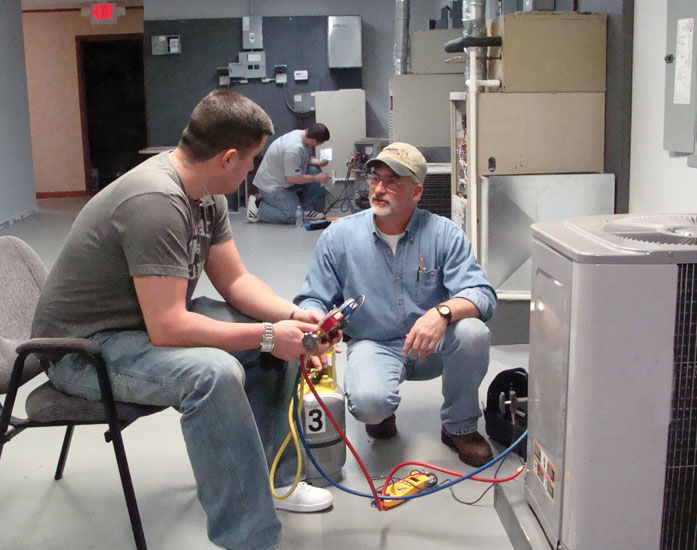
Photo credit: Achrnews.com
Further Studies
As technology changes, staying up-to-date is essential for your career. You might need to take professional development courses to stay on top. These courses may take a few months and aim at promoting one or two aspects of your knowledge base. For example, with rising environmental awareness, many courses focus on green HVAC technologies and certification.
How Much Does HVAC School Cost?
Depending on what the school includes, the prices can vary. Here are a few questions you need to ask yourself while selecting a course:

Photo credit: Hvacshool.org
Depending on these factors and the institution enroll in, below are the price ranges you might expect.
Certification Courses
The cost ranges between $1,200 and $15,000. If fieldwork hours, examination fees, and technician tools are required, it’ll cost more. These programs usually prepare an employment-ready specialist and are convenient for people who want to change or acquire a career in a short period.
Community vs Private College
On average, community colleges offer yearly tuition of $4,868 for in-state. They cost twice as much for out-of-state students. Private college programs are $15,467 per year. Two years is the average length for a program like this.
Associate Degree
These types of courses are more thorough from the engineering standpoint. If you're after a management position in the HVAC field, you might want to consider one of these programs. They cost from $15,000 to $35,000.
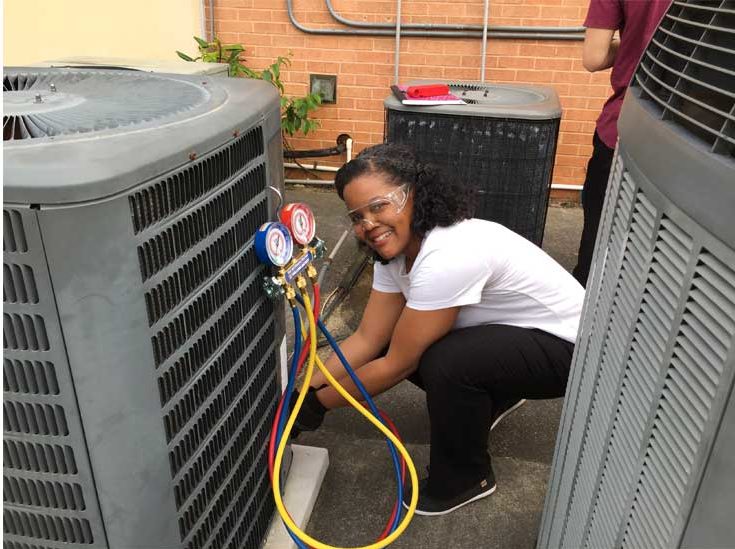
Photo credit: Achrnews.com
List of the Top HVAC Schools in San Diego
Finding top programs among the many schools offering HVAC training can be tricky. In the section below, you can find the best schools in San Diego and read brief descriptions for each.
We also recommend visiting their websites to learn more. Attending open houses is another practical way to get yourself acquainted with the educational opportunities in San Diego.

Address: 1313 Park Boulevard, San Diego, CA 92101-4787
Phone: 619-388-3400
List of Programs:
- Energy and Geo-Environmental Engineering (EGEE)
- Air Conditioning, Refrigeration, and Environmental Control Technology (AIRE)
Our Review of the Program
San Diego City College offers two HVAC programs, both within the School of Math, Engineering, Science, and Nursing.
The AIRE Program at San Diego City College aims at giving a solid knowledge base for future HVAC technicians, contractors, and dispatchers. As an essential engineering degree, it also prepares students for sales and service engineering positions.
It trains students in Green Technology and how residential refrigeration can impact the environment. The AIRE program prepares knowledgeable specialists and offers complimentary certification opportunities. Graduates learn the following skills:
- Sizing, designing, diagnosing, and repairing HVAC/R systems
- Reaching efficiency in all the mentioned skills
- Understanding and practicing the knowledge about airflow, water flow, and heating systems
- Using power and voltage equipment to find problems in the HVAC/R system
The EGEE Program focuses on green technology and how power sources impact today's society. The main objective is to develop the student's understanding of the correlation between environmental concepts and energy usage.
This program prepares analysts of building efficiency, energy auditors, HVAC/R mechanics and installers, green HVAC professionals, and solar energy installation managers. The students work towards the following goals:
- Managing building performance
- Evaluating indoor air quality
- Keeping an eye on innovations in the field of energy demand
- Examining the "house-as-a-system" and devising strategies for energy efficiency, performance, and costs
- Distinguishing energy ratings for various appliances
You can find all the admissions information in the "Future Students" section of the university website. The dates and deadlines for each semester are also available.
Address: UC San Diego Extension, 9500 Gilman Drive, MC 0176-H, La Jolla, CA 92093-0176
Phone: 858-534-3400
List of Programs:
- HVAC Systems Design and Control
Our Review of the Program
University of California San Diego Extension's HVAC Systems Design and Control program gives its students the knowledge and skills to survive in the evolving industry.
The coursework establishes the basics and paves the way to learning the intricacies of HVAC systems and components. It teaches the relationship between equipment and energy consumption and how to navigate through today's smart technologies.
The program offers numerous career opportunities for recent graduates and advancements for facility engineers. With its five required courses and 12 units, the certification takes about 18 months to finish. Anyone who completes this program will be able to:
- Find and fix any problems connected to HVAC systems
- Solve building automation, facility engineering, and energy efficiency challenges
- Understand Smart Building components and Net-Zero Energy
- Employ HVAC and direct digital control (DDC) system design fundamentals in real-life scenarios
The instructors involved in this course are professionals with connections in the field and academic circles. Courses include HVAC DDC Basics, Networking Design, Design Calculations, and System Designs. You can take the classes in any order.
The application form for this program is available on the extension page. When you click the "Apply Now" button, the website suggests registering in the portal and filling in your application.

Address: 4343 Ocean View Boulevard, San Diego, CA 92113-1915
Phone: 619-388-4956
List of Programs:
- Air Conditioning and Heating I
- Air Conditioning and Heating II
Our Review of the Program
San Diego Continuing Education offers a two-part certification program under its Skilled and Technical Trades department. The institution aims at enriching the community by providing innovative and accessible learning opportunities. They support lifelong learning and career growth.
Prospective HVAC students can apply online by filling in the free application. After receiving a student ID, create your online account, and ask for help if needed.
As a next step, the system will allow you to search for lessons and participate in the orientation program. Once you enroll in the program, you can start the classes.
These programs are for people who want to change careers or acquire a new one. The courses provide skills and knowledge for entry-level jobs. You'll get acquainted with tools and equipment, HVAC trends, and technology in the workplace.
The course also provides soft skills like problem-solving, communication, and interpersonal skills.
Air Conditioning and Heating I is a 72-hour course consisting of 11 weeks and seven hours weekly—convenient for those who work a day job.
The coursework includes cooling and heating theory 101, appliance fundamentals, requirements, and how they work. You'll learn everything about controls and schematics, thermostats, and ways to connect them.
This one lays the groundwork for the second course. Still, it doesn't mean that it only consists of theoretical knowledge. The instructors ensure that the students receive hands-on experience with appliances and equipment.
Air Conditioning and Heating II only lasts seven weeks (48 hours) and focuses on more in-depth aspects of the controlled-climate spaces. It teaches the intricacies of heating and cooling systems, components, and the differences between gas and electric heating.
The course also provides environmental protection certification to ensure the graduates can enter the workforce with no complications. This program is a career-oriented one; it also teaches job-search techniques.
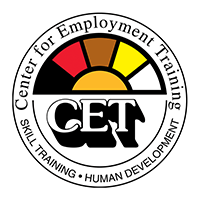
Address: 4153 Market Street, Suite C, San Diego, CA 92102
Phone: 619-527-4895
List of Programs:
- HVAC Specialist
- HVAC Technician and Green Technology
Our Review of the Program
With its 12 training centers in three states, the Center for Employment Training is an excellent place to jumpstart your career within seven to eight months. You can enter the workforce with the help of a dedicated job-search specialist. The center also has direct access to good leads in the field.
The low tuition cost and accessible programs will help you find your bright future with your new career. Plus, for those who’re not sure yet, the training center offers a two-week trial period. You can drop the course; no strings attached.
CET offers two courses for people interested in an HVAC career. The Specialist program is a hands-on skill-building course to prepare graduates for the job market as fast as possible.
The future specialists will learn how to deal with air conditioning, heating and ventilation appliances, service tools, and equipment. As HVAC maintenance relates closely to ductwork, soldering, and plumbing, the program also gives you a basic understanding of those topics.
The program is an intensive 30-hour-a-week training that prepares technicians, installers, refrigeration mechanics, and repairers to become ready for the job market in a matter of months.
The courses are available at $12,736, which includes tools, supplies, and books. Financial aid is also available.
The other course objectives and outcomes are quite similar. However, the focus is on green technologies and an environmentally friendly approach to HVAC specializations.
Address: 9920 Scripps Lake Dr #102, San Diego, CA 92131
Phone: 858-693-3855, 858-400-8983
List of Programs:
- HVAC Service Technician Certificate
Our Review of the Program
Plumbing-Heating-Cooling Contractors (PHCC) Association's Academy of San Diego offers an entry-level program for prospective HVAC Service Technicians. It's aimed at individuals with no or little experience in the field. You can graduate in seven or eight months.
In addition to bringing new specialists to the workforce, the PHCC association chapter in San Diego supports the career advancement of specialists with years of experience who need a continued professional training.
It works closely with member companies and member contractors to boost specialized coaching and education. The graduates can immediately take the 608 Exam required for all HVAC specialists in San Diego.
The tuition fee is affordable: $2,495.00 per year. The PHCC Members and students get a discount. It can be paid in full, per-semester, and monthly, with various discount options.
The course syllabus includes HVAC basics, safety, system controls (thermostats, power supplies, voltage regulation, etc.), tools, and equipment. There are three large modules after the introductory part: furnaces, air conditioning, and heat pumps.
After the midterms, the course focuses on voltages and troubleshooting. The last module teaches the specialists the intricacies of customer service.
What Makes San Diego a Great Place to Start an HVAC Career?
According to the Bureau of Labor Statistics (BLS), California is among the states with top demand for HVAC specialists in recent years. Especially in San Diego, the number of schools and specialists is growing.
Let's dive into the market's intricacies and see what makes the city an excellent place to start an HVAC career.
Climate and Nature
California can get hot in the summers; the temperatures are usually around 70°F and above. With spikes of up to 80°F, people naturally want cooling systems in their homes. San Diego is in the southern part of the state, close to the hotter areas.
Thus, the market adjusts to accommodate the demand for specialists that can handle HVAC technologies.

A Lot of Specialized Programs
State and local laws require certification and a few years of apprenticeship. The field demands not only technical but also environmental and customer service knowledge. Thus, the study programs aim to prepare prospective technicians and mechanics for the job market.
The courses are hands-on and close to the real-world requirements. You can find both long-term and area-focused programs, depending on your career goals. The best HVAC schools are affordable, and the courses are adjustable for people with day jobs.
Growing Salary
As the demand for qualified specialists grows, it's only natural that the salaries will increase. According to the BLS, in California, an HVAC specialist’s annual average salary is higher ($59,550) than the national norm ($50,160).
Job Outlook and Salary For HVAC Techs in San Diego
The BLS has projected a 4 percent increase in job outlook between 2019 and 2029. Most of California's specialist demand growth is in the state's southern parts (the primary factor being the hotter climate). The number of employed specialists in CA is the second-highest in the USA, after Florida.
High construction rates also factor in the demand for specialists in San Diego. Most city buildings have central HVAC systems that need periodic maintenance and replacement in 10 to 15 years.
With the employment market on the rise, the salary outlook is positive. Although it's not among the top five highest-paying states, California-based technicians earn a 1% higher annual median salary than the national average. Here are the three levels of wages according to the BLS:
- Entry Level: $30,790
- Mid-Level: $48,730
- Master-Level: $77,920
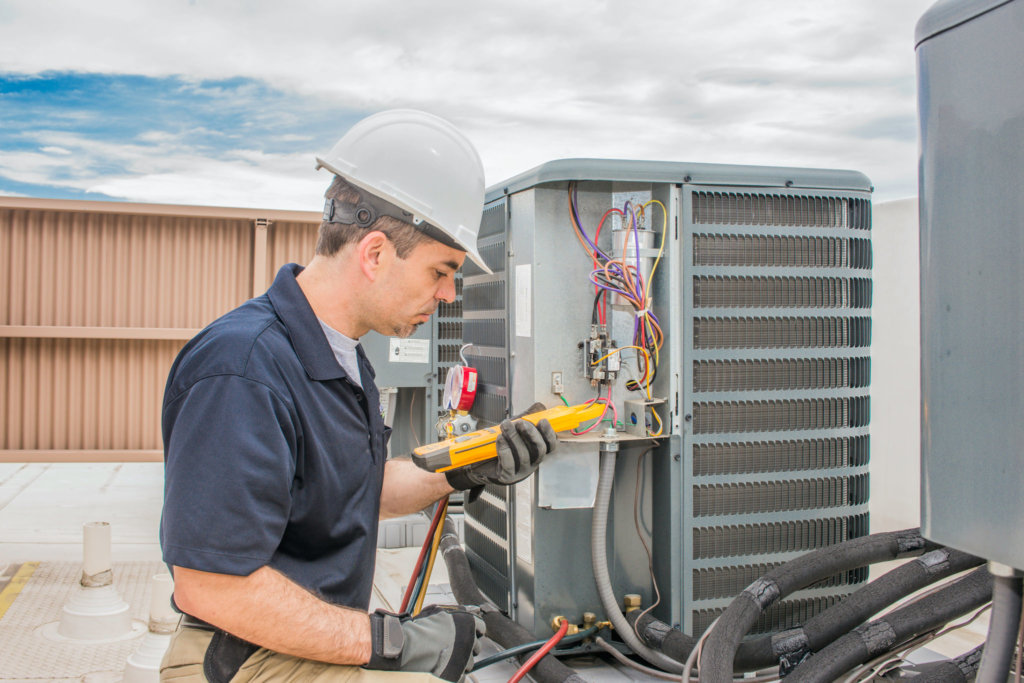
Photo credit: Myperfectresume.com
The success rate for a newly-graduated technician is relatively high. While nonmandatory, an apprenticeship can be a huge plus on your resume. Consider a job at a large company for a more systematic approach to entering the industry.
Once you have enough experience, establishing your contractor businesses should be as easy as pie. With growing interest in HVAC, the startup success rate will also be increasing.
Conclusion
There are many reasons why starting an HVAC career in San Diego can be a lucrative professional choice. You have everything you need: top-notch schools, a growing job market, many apprenticeships, and business opportunities.
We hope that our article gave you enough information to make an educated decision for your career path.
